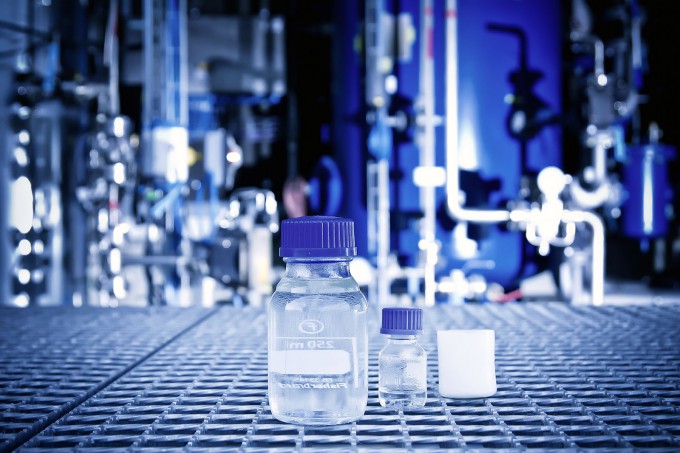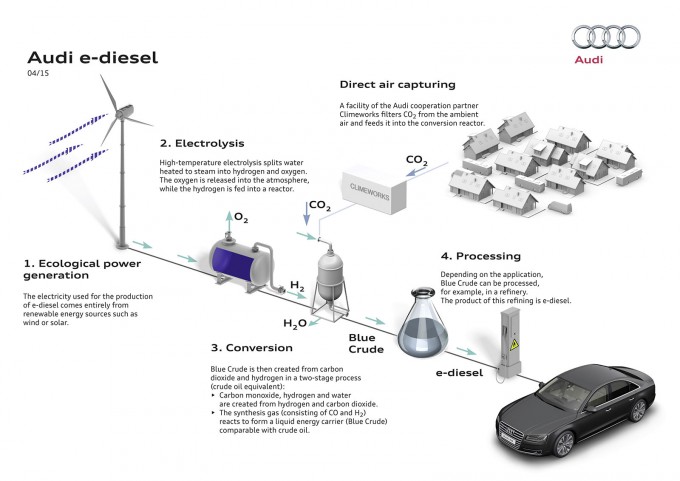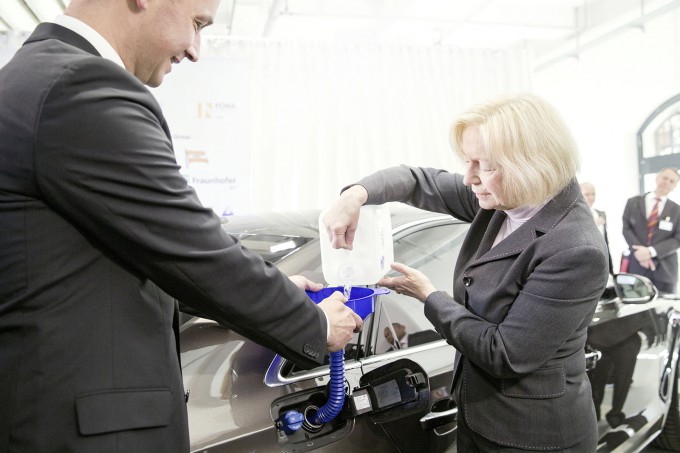- Qualcomm Launches Snapdragon 4 Gen 2 Mobile Platform
- AMD Launches Ryzen PRO 7000 Series Mobile & Desktop Platform
- Intel Launches Sleek Single-Slot Arc Pro A60 Workstation Graphics Card
- NVIDIA Announces Latest Ada Lovelace Additions: GeForce RTX 4060 Ti & RTX 4060
- Maxon Redshift With AMD Radeon GPU Rendering Support Now Available
H2O and CO2 = Audi’s New Clean Synthetic Diesel
It’s no secret that the modern world is critically dependent on fossil fuels. Unfortunately, such dependence carries with it some severe penalties. Not only is the dwindling supply causing ever-increasing prices, but pollution is also a price to pay that perhaps not everyone thinks about.
Well, straight from the “too good to be true” file is news that German automotive giant Audi has come up with a process of synthesizing a clean diesel fuel.
Audi’s crystal-clear “e-diesel” is made from water and carbon dioxide. More impressive is the company’s claim that the new fuel is made using processes that are powered by renewable energy sources. Perhaps the best news is that the new diesel’s emissions rate as carbon-neutral.
The new “e-diesel” is already being used successfully at the present time. Germany’s Federal Minister of Education and Research, Johanna Wanka, drives an Audi car which is serving as the test guinea pig for the fuel.
Audi has set up a plant in Dresden to synthesize up to 160 liters of the clean diesel. Clean tech specialists Sunfire will operate the Dresden facility. There are already plans to build even bigger e-diesel manufacturing facilities to boost production of the “blue crude,” which is the base material that is refined into the clear e-diesel.
The concept of clean non-petroleum fuels is not a new one. Last year the US Navy successfully tested a liquid hydrocarbon fuel synthesized from seawater. That concept relied on recovering CO2 and H2 from seawater; its validity and effectiveness were tested on a scale model airplane powered by an unmodified two-stroke petrol-fueled internal combustion engine.
With these advances in fuel synthesis technologies, it looks as if we’re getting closer to reducing our dependence on petroleum-based fuels. We’re also moving from “too good to be true” towards “so good and so true” as well.






